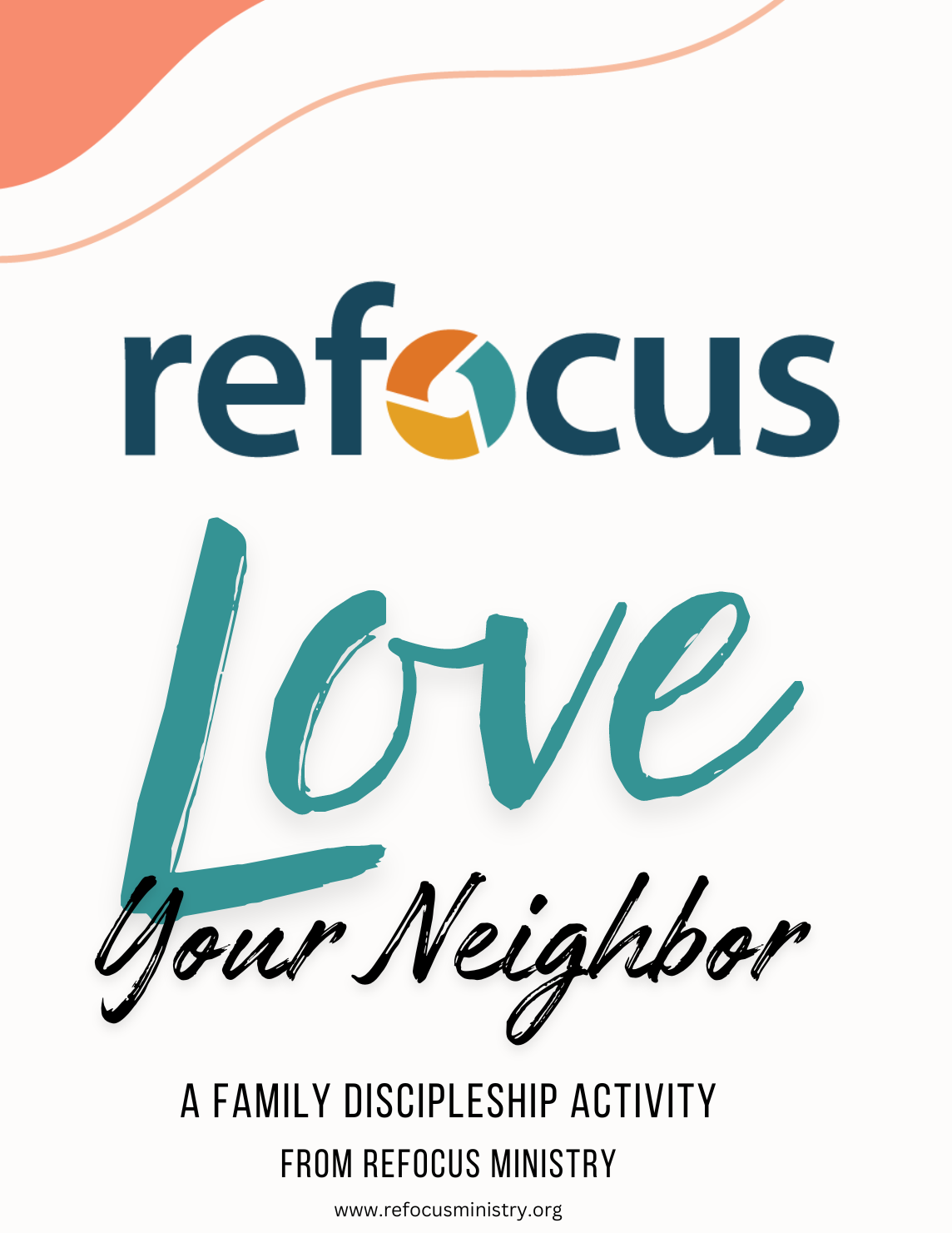Put a finger down if you work in some ministerial capacity and you’ve heard something like this:
“I had no idea that this was happening today! Was it announced?”
“I showed up and no one was there. Where is everyone? Is everything ok?”
“When we were we supposed to sign up for that? I never heard anything about it!”
“Do we have a church calendar or place I can find information about what’s going on? I always feel like I’m missing out on stuff because I never hear about it.”
“I guess this is just a spur of the moment thing, huh? Maybe in the future it would be good to have it announced somewhere.”
I know, I know. My shoulders were cringing just writing those. Because if you are in ministry, the one thing you can almost count on is that for every event, every opportunity, every scheduled activity, there will almost certainly be someone who tells you they never heard about it. Or we will host something and have only 1 or 2 people sign up because others claim they never heard about it or heard about it once and forgot.

I’ve seen these shirts at so many ministry conferences and we all smile and shake our heads because we all share the frustration of knowing we’ve announced something, probably more than once and probably in more than one setting, only to hear that people didn’t know it was happening. And almost every church I’ve worked out, one of the concerns raised consistently by the congregation is “We need better communication.”
If this is something you’ve experienced, here are a few things I’ve learned in my years of ministry that has helped me to communicate better, create more awareness, and gain more participation.
1. Say the Same Thing in Different Ways
About a decade ago I read a book called Faith Formation 4.0 by Julie Ann Lytle. In it the author states that unless we have shared about something in seven different ways, we are likely missing at least one or more generations that occupy our churches. I imagine that today, that number is likely higher.
Why? Because different generations take in information differently. Older generations generally do still prefer to hear things from the pulpit, read it in the bulletin, and receive a printed newsletter. Younger generations tend to access things more electronically via email, text message, or social media. People who don’t attend your church will look on your website or social media pages. Parents of kids in school are overwhelmed by school emails and text messages and probably need a personal face-to-face invite and a postcard to hang on their fridge.
Saturate your communication avenues. It will feel like a lot to you but I promise, the people who are on the receiving end will probably only experience one or two of your messages.
2. Overcommunicate, Overcommunicate, Overcommunicate
This goes hand-in-hand with the last one. This is not a “One and Done” scenario. Not only do you want to use all those different communication strategies, you want to do it more than once, probably at least 3-4 times prior to the event. Most people when first given information will acknowledge it but not possess it.
Research (see sources) suggests that we need to see information between five to seven times for it to transition from short-term to long-term memory. Five to seven times! We often don’t need things to move to long term memory but we do need them firmly implanted in short-term memory in order to bring about action. You will feel like you are a record on repeat and it will feel like you are just shoving information down people’s throats. I promise you, on their end, it will feel like a much needed reminder that will eventually prompt action.
3. Start Early (Earlier than that)
Whatever time period came to mind when you read “Start early” you probably need to start earlier. Whenever possible, try to give a heads up at leas6 to 12 months out that something is coming. You don’t even have to have all the plans in place; you just need to plant in their minds that something is coming.
For instance, every year for our youth, we put out a full schedule of events including meetings, service projects, and hangouts. Now, we don’t necessarily have dates for all of these; some are just months and some are just vague descriptions of what is planned. We might say, “Ice Skating – January” or “Rescue Mission – October” and that’s it for the time being. Details will come later. I usually start giving out details about 1-2 months in advance depending on the activity.
Even if your exact plans and dates change, giving people a significant warning and a chance to wrap their head around the big picture will pay off when you are ready to move forward with a specific event.
4. Listen, Don’t Shame
Look the shirt, the memes, they are funny. But if you are the parent who just can’t keep track of it all or the elderly person who couldn’t hear or read the announcement or the kid whose parents never tell him anything, it’s not as funny. In fact, it can be pretty embarrassing.
My suggestion? The next time someone makes a remark similar to the ones above simply say, “I’m so sorry you didn’t hear about this. What is the best way for you to receive information?” and then just listen. If they respond using one of the ways you did communicate it, don’t defend yourself or point out that you did that; again, that will only lead to shame or frustration. Instead, affirm that you will make sure to use that avenue in the future and you’ll be sure to make sure it’s announced more than once.
I know, it’s the hardest thing in the world in that instant to simply listen and acknowledge rather than point out the inconsistencies and defend yourself. But I promise, the long-term impact is that more people will hear your message in the long run and your communication practices will become even better.
If I’ve learned anything, you will never reach 100% of the people you want to reach 100% of the time. It’s just a reality that we have so much information coming at us throughout the week, some things will fail to land. But we can get a leg up if we use all the tools we have at our disposal including time.
When people ask me how I get church members to participate in activities, I promise you, it’s not because I have these amazing people in my congregation who just do everything and only need to hear it once. I have amazing people in my congregation who need lots of reminders, conversations, text messages, and gentle nudges to do the things I know they want to do but need loving reminders to do it. And, they don’t hate me for it! In fact, I’ll leave you with this text message from a parent I received just last week, “We’ll try to nail this down tonight. Thanks for the gentle nudging. As always.”
FREE FAMILY VBS WEBINAR

Vacation Bible School is often one of the highlights of the church year. It’s fun! It’s loud! It’s got snacks! But over the years, more and more churches have been wondering, “Has VBS run its course? Is it effective? Are we reaching our community?”
Let’s imagine a different kind of VBS.
Imagine the entire family moving through a faith experience together; playing games, building crafts, maybe even a short parent training on faith formation at home… all happening at one of your cherished church events – VBS!!
Join Christina on September 25 at 1 pm ET (12 pm CT, 11 am MT, 10 am PT) to answer some Frequently Asked Questions about Family VBS and get a quick peek at our Family VBS Curriculum Adaptor.
This event will replace our regular quarterly ReFocus Roundtable
Love Your Neighbor

FREE Family Discipleship Resource
Love your neighbor. James calls this the “royal law of Scripture” and it is a great starting point for families to begin to share the love of Christ in their own neighborhood. Offer families this packet which includes a Neighborhood Map and 4 Action Steps that will help them to 1. Get to Know their neighbors, 2. Pray for their neighbors, 3. Welcome their neighbors, and 4. Serve their neighbors. Download your copy today, print as many as you need for your church community!
About the Founder of ReFocus Ministry
Christina Embree is the founder and director of ReFocus Ministry. She holds a masters in ministry focused on Children, Youth, and Family Ministry and a doctorate in spiritual formation with a focus on age segregation and intergenerational ministry.
In addition to coaching churches of multiple denominations and traditions all around the globe, Christina serves as the Minister of Generational Discipleship for the Great Lakes Conference of the Brethren in Christ and as Next Gen pastor at Open Door Church in Lexington, Kentucky.
She is widely recognized as a speaker and author in the areas of generational discipleship, intergenerational ministry, and family ministry. As the mother of three children, she is familiar with the challenges of faith at home and pastoral ministry. She along with her husband Luke share a love for the church, their community, and the global work of peace and restoration through Jesus.
Interested in having Christina visit your church, speak at your conference, or coach your team?
Christina speaks on a wide range of topics related to children, youth, and family ministry with a unique focus on connecting generations for discipleship within your church. Her personalized approach allows you to pinpoint the needs of your community and gain the insight that you are looking for. Whether this is a volunteer team training and pastoral staff meeting or a ministerial conference, her experience and knowledge will help you determine the next step forward in creating lifelong disciples.



